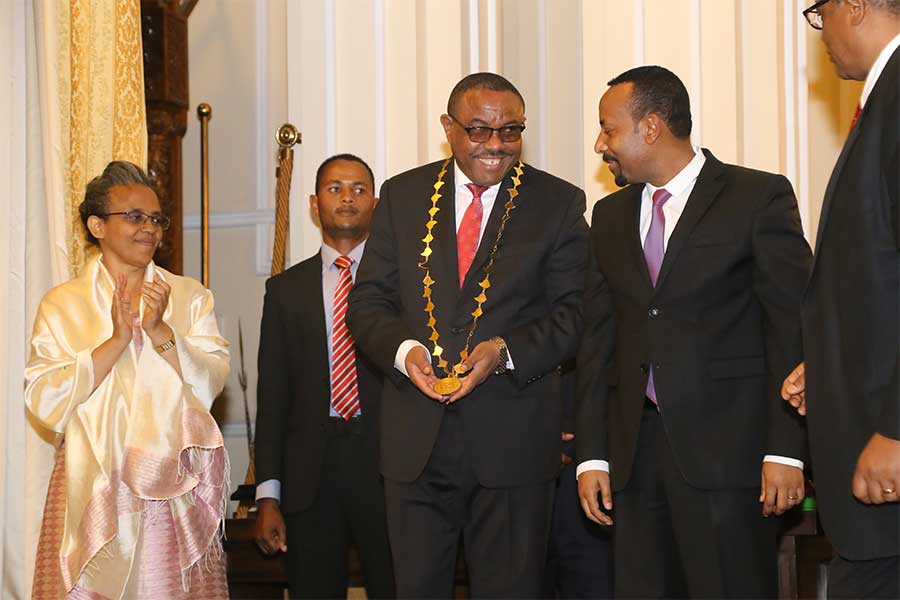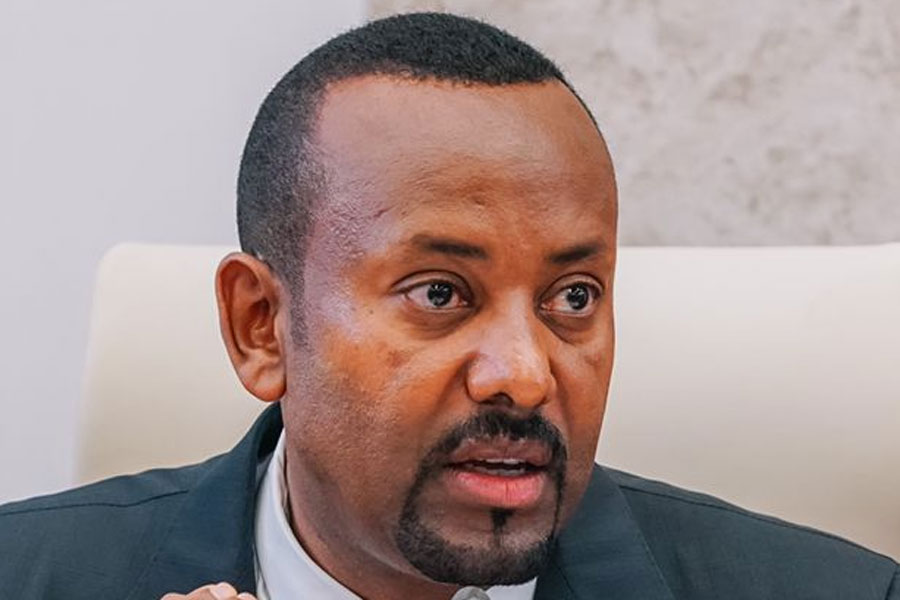
Viewpoints | Feb 08,2020
Jan 5 , 2019
By Hintsa Andebrhan
Politics is complicated, and geopolitics even more so. Every nation has an agenda in relation to its own sovereign interests, and more often than not in the grand game of geopolitics, despite the multilateral institutions that were created to protect against the lack of balance, it is the small nations that most lose out.
It is thus necessary to note that many of the complications that we see in the world today have their roots in the interests that big powers around the world, sometimes unfairly, want to secure. It is also the middle powers that step on the necks of poor nations just as painfully as the big ones step on them.
In an article in this publication headlined, “The Moral Imperative to Stand by Eritreans” [No. 970, Vol. 19, December 2, 2018], the author argued that Ethiopians should look beyond the rapprochement with Eritrea and demand a political opening in the small Horn country.
"The lifting of the sanction against Eritrea by the United Nations Security Council was seen as a reward for rapprochements with neighbouring countries and a vindication of the allegations of supporting radical terrorist groups in Somalia," was how the article began.
It was more than a vindication. Eritrea was innocent in that subsequent whistleblower accounts show that the sanctions leveled against the nation had little to do with the situation that followed tensions with neighbouring Djibouti.
It is also very hard to believe that the lack of evidence for the alleged support given to Somalia were the reasons for the lifting of sanctions. It was all a grand game of politics, which like always a small nation was forced to pay the price for. It was a leak by WikiLeaks that most justifies this view.
“[Ambassador Susan] Rice advised the group to reach agreement on a specific package of measures and counselled that the initiative would be more viable in the [United Nations Security] Council, if packaged as an African consensus proposal rather than one driven by Eritrea's estranged neighbours Ethiopia and Djibouti,” it read.
It gives a crucial insight into the set of decisions that went into the vote to put sanctions on Eritrea at the time, and show that they were partisan, lacking the necessary fair play before any nation is condemned to economic disenfranchisement.
To give credit where credit is due to Rice, she urged Washington, the administration of former President Barack Obama, to try and reach a settlement with the Eritrean government, then and now under Issayas Afeworki’s leadership. But this does not excuse from the fact that the United Nations was used as a tool to force the hand of a government, an incursion to the principles of the intergovernmental institution.
The sanctions against Eritrea that were lifted by the Security Council after nine years should never be seen as a reward for its rapprochement with Eritrea for investigations have cleared the country of its alleged support for radical groups in Somalia. It should be considered a corrective measure for the injustice that was committed against it.
The border dispute with Djibouti could not have been a reason for sanctions on its own, as there is no clear agreement to solve it as of yet. Indeed, it was a problem that could have been resolved between the two countries, at the most with support from the rest of the members of the region.
Of course, although I prefer to see the lifting of the sanctions as righting past wrongs, it too has a great deal to do with geopolitics. It follows a reorientation in foreign policy by President Donald Trump’s administration toward the region, with there being a consensus that the measure was taken to counter China’s influence in the region and empower Middle Eastern powers it supports.
I agree with the opinion piece that Eritreans deserve democratic rights and should be able to enjoy its fruits, such as elections and free speech, and that the government should put that on the table for its people.
There is a reason to believe that this could happen now as the political situation in the country before the unfortunate and, in retrospect, unnecessary Ethio-Eritrea War was very different. Working as a journalist back then, I was witness to the positive developments in the country, which led to the drafting of the constitution.
Eritrea has walked the harsh path to get to this point, biding its time until the political undercurrents turned to its favour. It kept its sovereignty, and gradually, it should begin strengthening its democracy.
PUBLISHED ON
Jan 05,2019 [ VOL
19 , NO
975]


Viewpoints | Feb 08,2020

Fortune News | May 29,2021

Editorial | Oct 11,2025

Viewpoints | Feb 03,2024

Fortune News | May 18,2019

News Analysis | Jan 05,2020

Verbatim | Jan 07,2023

Commentaries | Oct 02,2021

Fineline | Nov 30,2019

My Opinion | Aug 07,2021

Photo Gallery | 174584 Views | May 06,2019

Photo Gallery | 164812 Views | Apr 26,2019

Photo Gallery | 155006 Views | Oct 06,2021

My Opinion | 136695 Views | Aug 14,2021
Editorial | Oct 11,2025

Dec 22 , 2024 . By TIZITA SHEWAFERAW
Charged with transforming colossal state-owned enterprises into modern and competitiv...

Aug 18 , 2024 . By AKSAH ITALO
Although predictable Yonas Zerihun's job in the ride-hailing service is not immune to...

Jul 28 , 2024 . By TIZITA SHEWAFERAW
Unhabitual, perhaps too many, Samuel Gebreyohannes, 38, used to occasionally enjoy a couple of beers at breakfast. However, he recently swit...

Jul 13 , 2024 . By AKSAH ITALO
Investors who rely on tractors, trucks, and field vehicles for commuting, transporting commodities, and f...

Oct 11 , 2025
Ladislas Farago, a roving Associated Press (AP) correspondent, arrived in Ethiopia in...

Oct 4 , 2025
Eyob Tekalegn (PhD) had been in the Governor's chair for only weeks when, on Septembe...

Sep 27 , 2025
Four years into an experiment with “shock therapy” in education, the national moo...

Sep 20 , 2025
Getachew Reda's return to the national stage was always going to stir attention. Once...

Oct 12 , 2025
Tomato prices in Addis Abeba have surged to unprecedented levels, with retail stands charging between 85 Br and 140 Br a kilo, nearly triple...

Oct 12 , 2025 . By BEZAWIT HULUAGER
A sweeping change in the vehicle licensing system has tilted the scales in favour of electric vehicle (EV...

A simmering dispute between the legal profession and the federal government is nearing a breaking point,...

Oct 12 , 2025 . By NAHOM AYELE
A violent storm that ripped through the flower belt of Bishoftu (Debreziet), 45Km east of the capital, in...